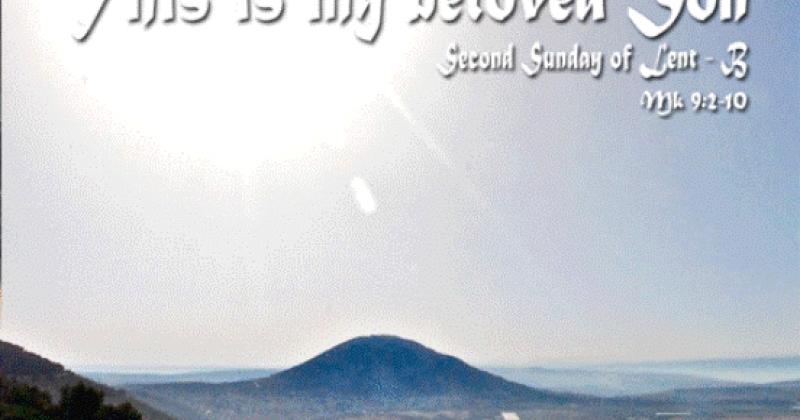What do we mean when we say that we make a sacrifice? I have sacrificed my career for my children! I sacrifice a lot for my job! Love demands that we make many sacrifices! Sometimes we must sacrifice life itself for the sake of integrity! Christ sacrificed himself for our sins! The Eucharist is a sacrifice!
From what is common in all these expressions we can extract Webster’s definition of a sacrifice: The surrender of something of value for the sake of something else.
That is a good definition, but it contains more than first meets the eye, as is evident when we look at the concept of sacrifice in the Jewish and Christian scriptures. Take, for example, the famous story where Abraham is asked to sacrifice his son, Isaac. What is ultimately behind God’s invitation to Abraham to sacrifice Isaac on an altar?
These are the outer elements of the story: Abraham has longed for a son for many years. Finally, after the situation was humanly hopeless, Sarah conceives and he is given a son, Isaac, who is the described as Abraham’s “only one”, his “precious one”. But then God invites Abraham to take Isaac and offer him in sacrifice. Abraham, with a heavy heart, agrees to the request and sets off with Isaac, carrying wood, fire, and a knife, all the while having to answer his son’s curiosity about why they were not bringing a victim for the sacrifice.
When they arrive at the place of sacrifice, Abraham gathers the wood, lights the fire, binds Isaac, and then raises the knife to kill him. But God intervenes, stops the sacrifice, and gives Abraham a ram instead to offer. The story ends with Abraham walking back to his own land together with Isaac. What is the deep lesson inside this story?
At one level, the lesson is that God does not want human sacrifice, but there is a deeper, more intimate, inner lesson that teaches us something about the innate need inside of us to offer sacrifice. Simply put, the lesson is this: In order for something to be received as a gift it must be received twice. What is implied here?
A gift, by definition, is something that is not deserved but given freely. What is our first impulse when we are given a gift? Our instinctual response is: “I can’t take this! I don’t deserve this!” In essence, that gesture, that healthy instinctual response, is an attempt to give the gift back to its giver. But, of course, the giver refuses to take the gift back and re-gives it to us with the assurance: “But I want you to have this!” When we receive it the second time, it is now more properly ours because, by trying to give it back, we healthily recognized that it was a gift, unmerited, undeserved.
That is the exact set of dynamics within the story of Abraham offering to sacrifice Isaac. Isaac comes to him as the greatest, most-undeserved, gift of his life. His willingness to sacrifice him parallels the instinctual gesture: “I don’t deserve this! I cannot accept this!” He offers the gift back to its giver. But the giver, Love itself, stops the gesture and gives the gift the second time. Now Abraham can receive Isaac, without guilt, as gift. When they are walking back home, Isaac is now Abraham’s son in a way that he never was before. Abraham had to receive the gift twice by sacrificing it the first time.
That is the essence of sacrifice: To properly receive anything, including life itself, requires that we recognize it precisely as gift, as something undeserved. And to do that requires sacrifice, a willingness to give some or the entire gift back to its giver.
We see this as the dynamic underlying the ritual of ancient sacrifice. For example: A farmer would harvest a crop. But, before he or his family would eat a even mouthful of it, he would take some of it (the “first-fruits”) and offer it back to God in the form of a sacrifice, usually by burning it so that that the smoke rising up to the heavens would take some of the crop back to God whom the farmer saw as the real giver of that crop. After sacrificing some of it in this way, the farmer and his family could now enjoy the rest of it without guilt because, by trying to give it back to its author, they made themselves more aware that it was gift. They can now enjoy it without guilt precisely because, through sacrifice, they have acknowledged it as gift.
That’s the inner essence of all sacrifice, whether the sacrificing of a career for the sake of our children or Jesus’ sacrifice on the cross. Sacrifice recognizes gift as gift. Like Abraham, it tries to give the gift back to the giver, but the giver stops the sacrifice and gives it back in even a deeper way.
We would enjoy our lives considerably more if we understood that.
